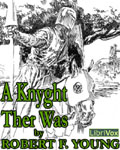
 Siege Perilous (The Mongoliad Cycle #5)
Siege Perilous (The Mongoliad Cycle #5)[UNABRIDGED] – 12 hours
Publisher summary:
Ocyrhoe, a young, cunning fugitive from Rome, safeguards a chalice of subtle but great power. Finding herself in France, she allies with the persecuted, pacifist Cathar sect in their legendary mountaintop stronghold, Montségur. There she resists agents of the Roman Church and its Inquisition, fights off escalating, bloody besiegement by troops of the King of France, and shields the mysterious cup from the designs of many.Percival, the heroic Shield-Brethren knight from The Mongoliad, consumed by his mystical visions of the Holy Grail, is also drawn to Montségur—where the chalice holds the key to his destiny. Arrayed against Percival and Ocyrhoe are enemies both old and new who are determined to reveal the secrets of the Shield-Brethren with the hope of destroying the order once and for all.Alive with memorable characters, intense with action and intrigue, Siege Perilous conjures a medieval world where the forces of faith confront the forces of fear. Choices made by characters in The Mongoliad reach their ultimate conclusion in this fifth and concluding novel—and all of Christendom is at stake.
And so it ends. When I started The Mongoliad series last year, I thought it was just a trilogy. I had no idea what to expect with the series as a whole and with the idea of “group fiction.” I had no idea I’d be getting into a historical fantasy-type book (series) with a little mysticism thrown in for fun, had no real idea the breadth that the series would take. Now that I’m done with the main series of Foreworld books, I’m a little sad to see them go. Certainly I’ve liked some better than others, but this book, Siege Perilous, was a fitting and mostly satisfying end.
If you’ve read my reviews of the previous books (Book One, Book Two, Book Three, and Book Four), you’ll recall that my biggest frustration with these books is the expanse of story that is covered. There are multiple plot lines with widely varying characters across a wide geographical area. This makes it hard to keep track of who is who and what’s going on in any given story line, and made the books less “fun” to read. This book didn’t have the same problem. There were still a few story lines (3-4), but they quickly came to all be in the same setting; we were able to see the same event from a few different points of view. Without the confusion of the world and the various goals each person was trying to meet, since those had all come together, it was much easier to follow, and as such made the overall story more enjoyable to read (listen to).
This may have also been helped by the fact that this seems to have been written by only one person. Previous books in the Foreworld Saga were written by at least 3 authors. I’m not sure if these were group writing events, where everybody weighed into each plot line, or if everybody wrote a separate story, but the end result was a difficult-to-follow main story. At first, I wasn’t sure if E.D. deBirmingham was a real person or if it was a pseudonym for a group of the writers, but this 2012 Sword & Laser Google Hangout with the authors from the series demonstrates that she’s really just one person. She also seems to be one of the only women in the project, if not the only woman. I think the woman’s touch on the writing–the battle scenes in particular–was observable in the book as the battle scenes were not as…well, drawn out in this one, as they were in past books.
Plot-wise, this book wraps up the story of the quest for the Holy Grail. Early on in the series, it became obvious that Percival had visions and was on a quest of some sort for the Holy Grail. All of the movements of the Knights Brethren was driven by that. They met and worked with the Binders and the Shield Maidens, they fought the Mongols and the Levonian Brotherhood, all along their quest. When we left the Knights Brethren in Katabasis, the Mongols had been left to decide their new Kahn of Kahns, Ferronantus had died trying to preserve the Spirit Banner, and Raphael found himself talking to Leanne and Gonsuk to get the small sprig of wood that was important to the Spirit Banner and the Mongols. Back in Rome, Cardinal Vieshi had been elected Pope after mad Father Rodrigo was killed by Ferrens after trying to kill Ohseriweh (a Binder orphan). Ohseriwheh was sent away from the Holy Roman Emperor (King Frederic) to protect the Holy Grail that Father Rodrigo had held/used, and Ferrens became a member of Frederic’s court. This book more or less starts with that setup, and takes us along with Raphael, Percival, Ferrens, Ohseriweh, Cardinal Vieshi, and Levonian Herrmeister Deitrich. Through various means, they find themselves in Carcassonne, in a part of the Crusade involving the Cathars and an isolated mountaintop fort. I don’t want to spoil the plot, so that’s where I’ll leave it, but suffice it to say that the book mostly takes place here, through the eyes of these characters, as they struggle to find the rightful vehicle for the Holy Grail.
As much as I enjoyed this book, I did not particularly enjoy the audiobook version. The narrator for this book was Angela Dawe, a break from the previous books’ narration by Luke Daniels. Dawe’s voice had some quirks that didn’t work for me with an audiobook. Quite often, it seemed like she had an higher voice at the end of the sentence than the beginning. This made it sound like some of the sentences were questions, rather than statements. Her pacing was odd, too. There were longer-than-normal breaks between each sentence, the silence lasted just a beat longer than expected. Oddly, the narration didn’t seem to take a breath or pause when I would have expected there to be commas. Further, and this may be due to editing, there wasn’t much of a gap between section breaks within a chapter. This made it hard, sometimes, to know immediately that a new point of view was coming and would make me confused until my brain registered that there was a section break. I’m not sure what lead to this narrator’s selection, but I wasn’t as happy with it as I was Luke Daniels’ narration.
All in all, I’m glad I read the series. I actually will not be leaving the world quite yet, as I have a few of the SideQuest Adventure books and another side story in the world. I’ll be reading those soon, to keep up my familiarity with the world. I definitely think that listening to this book shortly after finishing Katabasis helped keep the overall plot in my head. To those who might be interested in reading the Foreworld Saga books, I do strongly recommend reading at least the 5 main-line books in order and in close time proximity to one another. Siege Perilous, while in many respects an outsider in the saga, may have in fact been my favorite, and provided a mostly satisfying end to the Saga.
Posted by terpkristin.



